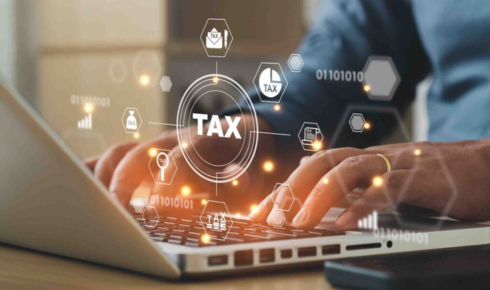Managing rental properties comes with a myriad of responsibilities, from finding reliable tenants to handling maintenance issues. Yet one of the most consistent challenges for landlords is staying on top of their taxes. The UK’s Making Tax Digital (MTD) initiative has transformed how landlords report income and expenses, requiring a more structured and digital approach. For many, this shift can feel daunting, but the right MTD software for landlords makes the process significantly more manageable.
Making Tax Digital software is designed to automate, streamline, and simplify tax compliance. By connecting income and expense records directly to HMRC-compliant systems, landlords can reduce the risk of errors, save time, and maintain better financial records. Modern solutions also integrate seamlessly with accounting tools, allowing landlords to track property performance in real-time and make more informed financial decisions.
What is Making Tax Digital Software?
At its core, Making Tax Digital software is a platform that enables landlords to submit their income tax records digitally, in line with HMRC requirements. Unlike traditional methods, where landlords manually calculate profits and expenses before submitting annual returns, MTD software allows ongoing, real-time reporting. This continuous approach helps prevent last-minute stress and reduces the likelihood of mistakes.
Most MTD software solutions provide dashboards that give a clear overview of rental income, expenses, and upcoming tax obligations. By categorising expenditures—such as maintenance costs, mortgage interest, and utility bills—landlords can easily track allowable deductions. Additionally, many systems offer automatic updates when HMRC changes reporting requirements, ensuring landlords remain compliant without needing to monitor legislation constantly.
Benefits of Using Making Tax Digital Software
The benefits of adopting MTD software go beyond compliance. Firstly, it reduces administrative workload. Landlords no longer need to dig through spreadsheets, receipts, or bank statements at year-end. Transactions can be automatically imported from bank accounts, invoices, or property management platforms, saving valuable time.
Accuracy is another significant advantage. By linking records directly to HMRC-compliant software, the risk of calculation errors is substantially lowered. This can prevent unnecessary penalties or delayed submissions, which are common issues for landlords managing multiple properties.
Additionally, MTD software often provides reporting features that help landlords analyse their property portfolios. Understanding which properties are most profitable, where costs are rising, and how tax obligations fluctuate over time allows landlords to make strategic decisions about future investments or property improvements.
Why Landlords Should Embrace Digital Tax Management
Many landlords are hesitant to adopt digital systems, especially if they have relied on traditional bookkeeping for years. However, the shift to MTD isn’t just a regulatory requirement—it’s an
opportunity. Digital tax management increases transparency, reduces stress during tax season, and helps landlords maintain better control over their finances.
Another reason to embrace MTD software is efficiency. Automating calculations and reporting frees up time for landlords to focus on other aspects of property management, such as tenant relations or portfolio growth. In the long run, the software pays for itself by preventing errors, saving hours of manual work, and providing actionable insights that improve profitability.
Choosing the Right MTD Software for Your Needs
Selecting the right Making Tax Digital software depends on the size of your property portfolio, your level of accounting knowledge, and the features you prioritise. For landlords with a few properties, straightforward solutions with easy bank integrations and simple reporting dashboards may be sufficient. For larger portfolios, more advanced features—such as multi-property tracking, automated tax calculations, and real-time HMRC submissions—can save significant time and effort.
RentalBux is an example of software designed specifically for UK landlords. It offers HMRC-compliant MTD reporting, automated income and expense tracking, and intuitive dashboards that allow landlords to monitor the financial health of their properties effortlessly. What sets RentalBux apart is its focus on the landlord experience: simplifying complex tax obligations while still providing detailed insights for those who want them.
Preparing for MTD Compliance
Before fully adopting MTD software, landlords should ensure they understand the scope of the initiative. The first step is confirming that their rental income meets HMRC thresholds for digital reporting. Next, landlords should gather all historical financial records and categorise expenses accurately. While MTD software helps maintain ongoing records, setting up a clear and organised system from the start reduces the risk of reporting errors.
Training and familiarisation are also crucial. Even the most intuitive software benefits from initial guidance or tutorials. Taking the time to understand how transactions are recorded, how categories work, and how reports are generated ensures that landlords can make the most of their software.
Conclusion
The transition to Making Tax Digital for landlords represents a significant shift in how rental income and expenses are reported. While the change can seem challenging at first, modern MTD software makes compliance easier, more accurate, and less time-consuming. By automating record-keeping, integrating with bank accounts, and providing actionable insights, landlords can focus on growing their property portfolios rather than worrying about tax deadlines.
RentalBux, in particular, provides an HMRC-compliant platform tailored for landlords, combining simplicity and advanced features in one package. By embracing MTD software, landlords not only meet legal obligations but also gain better control over their finances, reduce errors, and improve the efficiency of their property management.

